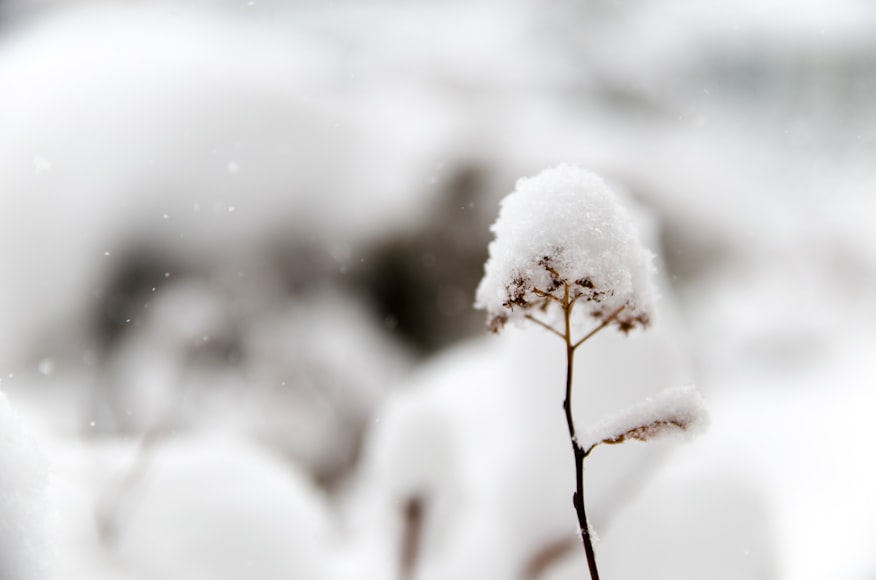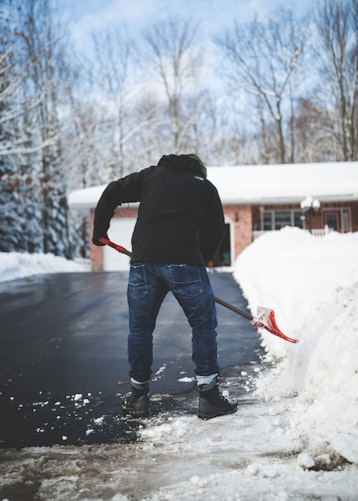
Disclaimer: You did not mistake the date on your calendar. This is a rare Saturday post by Lars Walker. Due to a certain weirdness in my life right now, I’m posting book reviews every day (two yesterday). What you’re reading now is a personal post, so I’m squeezing it in on the weekend.
March did not go out like a lamb in Minnesota last night. It went out like Mike Tyson, or Chronos the Titan, or a Frost Giant, or any kind of large, brutal mythological creature you might want to imagine. Yesterday the spring melt was well underway. Today it’s underway too, but with a difference. Nearly ten inches of snow fell overnight, even though the temperatures only slipped below freezing for a few hours. We woke to piles – sometimes towers – of thick, heavy white precipitate, already congealing into a dense, waterlogged mass. My neighbor with the snow blower cleared the driveway. But I had to clear the steps, front and back. And that meant hacking through knee-high piles of white stuff that looked like Styrofoam but weighed like sandbags.
But I cleared it out, and didn’t have a heart attack. I went to a restaurant for lunch (went to the farther Applebee’s rather than the closer Applebee’s, because they just closed the closer Applebee’s forever. More fruits of scientific, infallible Progressive governance). It was a strange environment in the parking lot. The sky is clear and the sun shines with full force, producing that wonderful effect (it’s called “apricity”) in which one feels warmer than the actual temperature, due to the intensity of the light. Yet all around us were mountains of snow. Kind of an alien, fantasy world for a day, where the physical laws are different.
Anyway, that’s not what I came to post about. Just thought I’d mention it.
Thursday night I attended a lecture in St. Paul. I don’t generally go out at night anymore; I have gained that wisdom of age that tells me very little good is likely to happen to me after dark in the urban area. But a friend invited me and urged me to come, so I acquiesced. In the end I was glad I did.
The lecture was held at the Cities Church on Summit Avenue, which is the Beacon Hill of St. Paul. It’s where James J. Hill and F. Scott Fitzgerald lived. Where the governor has his mansion. (The roads, by the way, are full of potholes. Even plutocrats can’t get basic services in that city.) The lecture was part of a series sponsored by Bethlehem College and Seminary, a small Baptist school.
The lecturer was one of their professors, Professor Matt Crutchmer, who looked impossibly young to me. He spoke on “Hope Beyond the Walls of the World” in J.R.R. Tolkien’s The Lord of the Rings.
The core of his theme – as I understood it – was the nature of Christian hope, as portrayed by Tolkien. Hope for the Christian, he said, is not attached to any particular thing in this world (I wish I could recall the word he used for this idea, but it’s slipped my mind). Our hope isn’t for a good election result, or a military victory, or for rain or a successful business deal or a stroke of luck. Our hope is a more basic one – like the star Earendil that Sam spied through the clouds on the way to Mordor. Our hope is just there. It’s part of God’s creation and immovable. We may be defeated; we may suffer; we will surely die. That affects our hope not at all. “It’s like in the great stories, Mr. Frodo.” We believe that God shapes all ends, regardless of what we do or what happens to us now. In that lies our peace.
I needed that message just now, for reasons I won’t detail. I was just glad I heard it.




